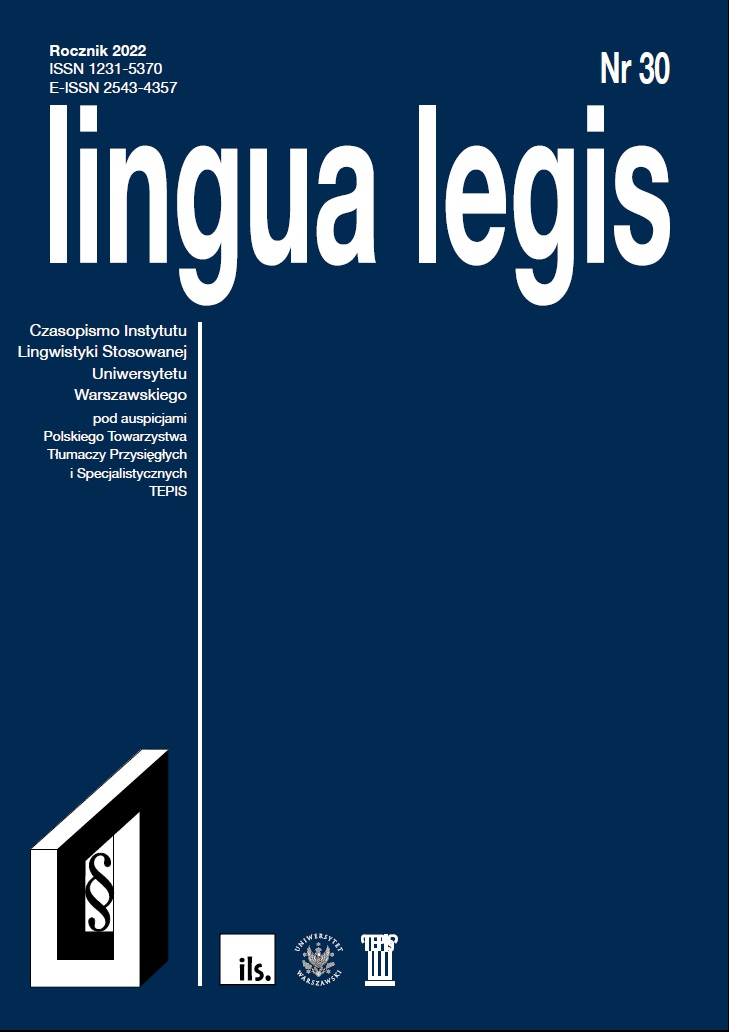Preparing Future Court Interpreters. How Are Questions Phrased in Virtual Court Settings?
Słowa kluczowe:
legal interpreting, court interpreting, remote interpreting, courtroom discourse, question typesAbstrakt
In the common law courtroom discourse, counsels use questions as strategic devices to present a carefully curated version of the case in court proceedings. Most of the existing studies focused on questioning in face-to-face courtroom interactions. However, little is known about questioning in interpreter-mediated remote communication. Drawing upon Hale (2004/2010)’s taxonomy of courtroom questions, this article reports the initial findings from a larger experiment research that assesses the accuracy of court interpreting in remote settings. The present study examines the less-investigated use of questions in simulated virtual courts and remote interpreting settings. Using the experiment method, this research collected collocation from 50 certified interpreters based in Australia. A total of 2,350 courtroom questions in English were transcribed and analysed. However, only 2,265 questions were found in Mandarin Chinese interpretations. Therefore, it is deemed necessary for future court interpreters working in remote settings to understand how questions are phrased, particularly the most prevailing question type in examination-in-chief and cross-examination for better accuracy. Findings have revealed that the less coercive question, such as interrogative, is a predominating choice for the examiner-in-chief. In contrast, the more aggressive question type, such as the declarative with tags, is prevalent in the cross-examination. The present study intends to inform future pedagogical practice.





